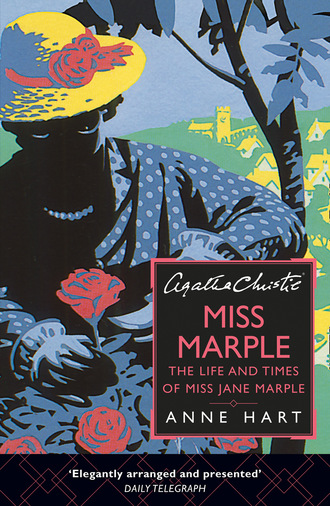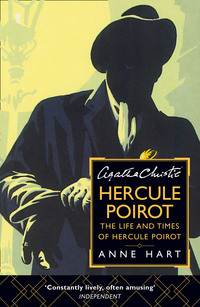
Полная версия
‘We all had them, it was the proper thing for young girls. You were going to nurse lepers, Jane, and I was going to be a nun. One gets over all that nonsense. Marriage, I suppose one might say, knocks it out of one. Still, taking it by and large, I haven’t done badly out of marriage.’
Neither did Carrie Louise. Between them the two sisters were to acquire six husbands and a great deal of wealth. It can hardly be said that Miss Marple followed their examples.
Though she herself did not marry and was destined, in fact, to become the archetypal village spinster, Miss Marple had her own salad days and a number of beaux. In old age she was to recall them with indulgence:
Jane Marple, that pink and white eager young girl … Such a silly girl in many ways … now who was that very unsuitable young man whose name – oh dear, she couldn’t even remember it now! How wise her mother had been to nip that friendship so firmly in the bud. She had come across him years later – and really he was quite dreadful! At the time she had cried herself to sleep for at least a week!
And there was:
A young man she had met at a croquet party. He had seemed so nice – rather gay, almost Bohemian in his views. And then he had been unexpectedly warmly welcomed by her father. He had been suitable, eligible; he had been asked freely to the house more than once, and Miss Marple had found that, after all, he was dull. Very dull.
And she had enjoyed dancing. In old age, holidaying in the Caribbean, she would have preferred ‘the muted strains of the “Blue Danube”,’ though she had to confess that watching the local dancing had its merits as well: ‘She liked the shuffling feet and the rhythmic sway of the bodies.’ Rather more comfortable, perhaps, than
‘dancing with a man dressed as a brigand chief when I was a young girl. He had five kinds of knives and daggers, and I can’t tell you how awkward and uncomfortable it was for his partner.’
In later years, when she was in her sixties, seventies, and eighties, Miss Marple occasionally made such references to her girlhood, but on no recorded occasion did she ever refer directly to all the other years between. We know nothing of her life as a young woman, her middle age, or how she came to her appointed place as the resident sleuth of St Mary Mead. One would like to speculate, to imagine something vaguely heroic, perhaps, but it is all explained as much as it will ever be, I suspect, by scattered references to home nursing. ‘I am used to sick people,’ she once said. ‘I have had a great deal to do with them in my time.’ On another occasion we are told: ‘Long experience of nursing made Miss Marple almost automatically straighten the sheet and tuck it under the mattress on her side of the bed.’
‘Long experience of nursing …’ From this single phrase emerges a picture of the unmarried daughter, the once pink-and-white eager girl, who stayed at home in some provincial town to gradually become, as the years passed, the companion and nurse of her parents in their old age. She also became, as we shall see, the real or honorary favourite aunt – sometimes doting, sometimes vinegary – of a number of people.
Few would regard all this as an exciting life, but nowhere is there any hint that Miss Marple considered herself a martyr. She did, however, once confide to a lonely person:
‘I know what you mean … One is alone when the last one who remembers is gone. I have nephews and nieces and kind friends – but there’s no one who belongs to the old days. I’ve been alone for quite a long time now.’
Behold her, then: Miss Jane Marple, her parents dead, her sister dead, her jolly aunts and uncles long gone to their proper rest. She is living alone in genteel and thrifty old age in the quiet village of St Mary Mead, the possessor of a small but pretty Victorian house no doubt purchased from a modest inheritance left her some years before by her dear parents.
It is the 1930s – or is it the 1920s? – and she is about to embark on an amazing career.
* It is interesting to recall that Caroline Sheppard, Miss Marple’s progenitor, had, for a short and interesting time, Hercule Poirot as a neighbour, a person whom Miss Marple herself apparently never met.
Конец ознакомительного фрагмента.
Текст предоставлен ООО «ЛитРес».
Прочитайте эту книгу целиком, купив полную легальную версию на ЛитРес.
Безопасно оплатить книгу можно банковской картой Visa, MasterCard, Maestro, со счета мобильного телефона, с платежного терминала, в салоне МТС или Связной, через PayPal, WebMoney, Яндекс.Деньги, QIWI Кошелек, бонусными картами или другим удобным Вам способом.




